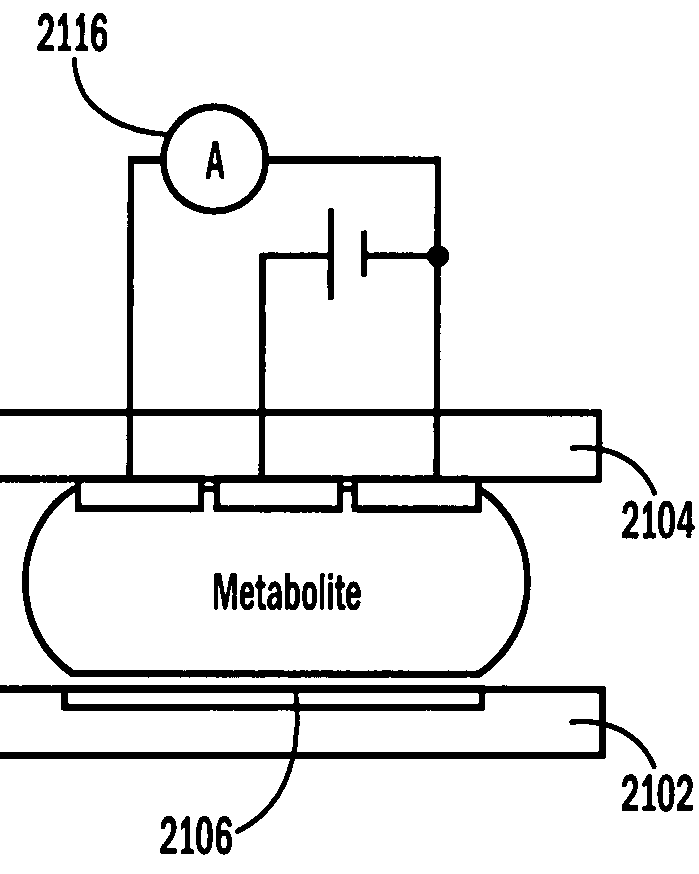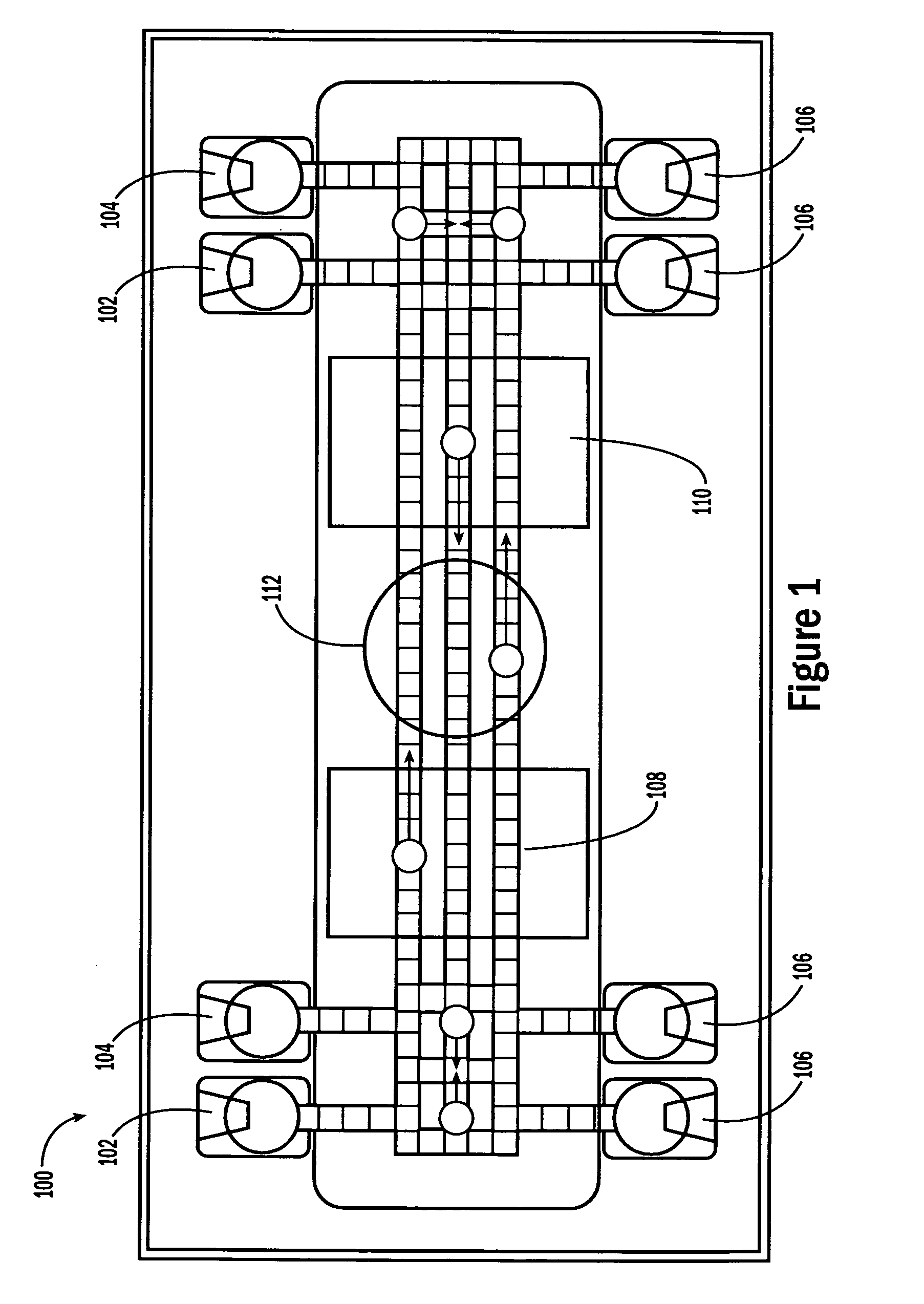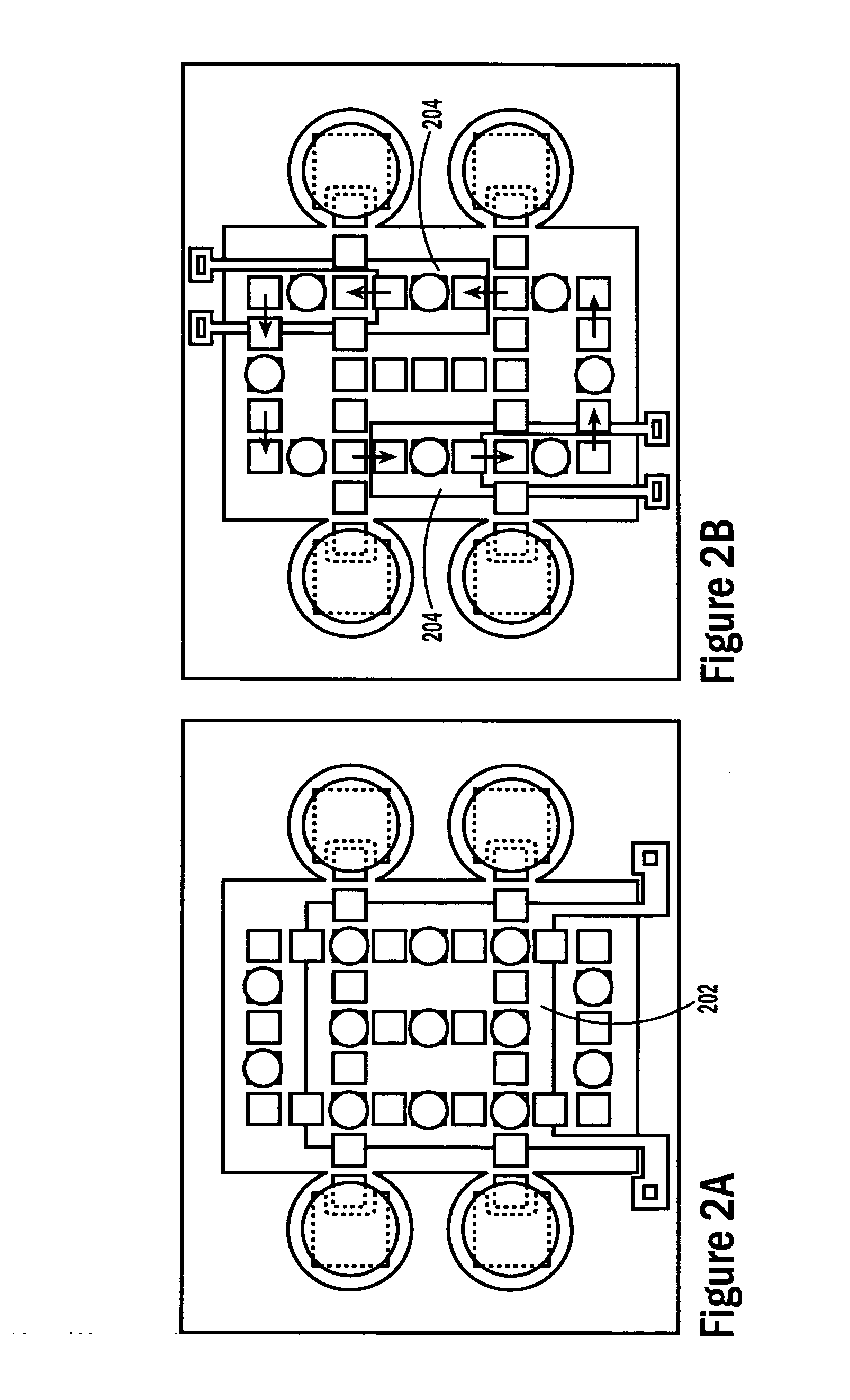Filler fluids for droplet operations
a technology of fluids and droplets, applied in the field of liquid droplets for liquid droplets, can solve the problems of high labor intensity and susceptibility to cross-contamination, low sensitivity of pcr-based dna amplification methods, and inability to simultaneously assay multiple species,
- Summary
- Abstract
- Description
- Claims
- Application Information
AI Technical Summary
Benefits of technology
Problems solved by technology
Method used
Image
Examples
Embodiment Construction
[0055]The invention provides methods, devices and systems for executing one or more droplet-based biochemical assays. For example, the invention provides methods, devices and systems for amplifying nucleic acids, analyzing the sequences of nucleic acids, conducting affinity-based assays, and / or analyzing components of bodily fluids.
[0056]In certain embodiments, a protocol of the system may involve one or more of the following steps in any order which achieves the detection end of the invention: extracting sample from a subject; processing the sample for loading onto a droplet microactuator; loading the sample onto the droplet microactuator; dispensing one or more sample droplets of the sample for transport on the droplet microactuator; loading one or more reagents onto the droplet microactuator; dispensing one or more reagent droplets for transport on the droplet microactuator; transporting one or more reagent droplets and / or one or more sample droplets so as to bring the one or mor...
PUM
 Login to View More
Login to View More Abstract
Description
Claims
Application Information
 Login to View More
Login to View More - R&D
- Intellectual Property
- Life Sciences
- Materials
- Tech Scout
- Unparalleled Data Quality
- Higher Quality Content
- 60% Fewer Hallucinations
Browse by: Latest US Patents, China's latest patents, Technical Efficacy Thesaurus, Application Domain, Technology Topic, Popular Technical Reports.
© 2025 PatSnap. All rights reserved.Legal|Privacy policy|Modern Slavery Act Transparency Statement|Sitemap|About US| Contact US: help@patsnap.com



